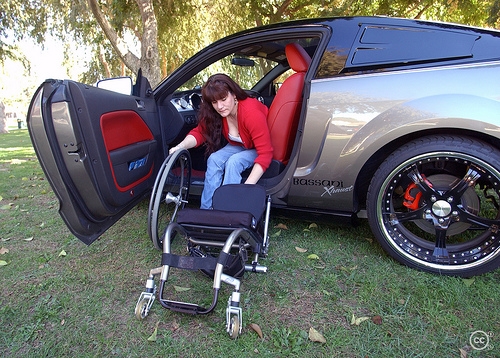
Learning to drive is an important part of any teenager's life. With the availability of adaptive driving lessons, the feelings of accomplishment and freedom can be shared with physically disabled student drivers. Here are a few things you should know about disabled driving lessons and the path to getting a driver's license as a disabled person.
Before a person with a physical disability can begin driver's training they must first be evaluated by a physical or rehabilitation therapist to determine what teaching and vehicle adaptations must be made. Driving schools that specialize in adapted driving lessons often have an in-house physical therapist that can evaluate the needs of disabled student drivers. If not, your doctor can recommend a physical therapist to evaluate your driver aptitude.
There are a number of vehicle adaptations that can be made to make driving possible for disabled persons. These adaptations can be as simple as installing a wheelchair ramp to purchasing an adapted vehicle with hand instead of foot pedal controls. While it is possible to have almost any vehicle adapted for use by a disabled person, Ford Mobility Motoring manufactures vehicles specially designed for use by the disabled. After you've received your driver aptitude assessment, contact Ford Mobility Motoring, or similar, to discuss purchasing a custom-adapted vehicle.
Driver's training for the disabled is as varied as disabilities themselves. Your adapted driving coach will tailor your driving lessons to suit your individual needs. Depending on where your school is located and the demand for adapted driving lessons, you may receive your driving lessons in a class with students with similar disabilities or you may receive one-on-one driving instruction. In addition to learning driving laws and how to operate a vehicle, your adapted driving instruction will also cover how to get in and out of your vehicle without assistance.
The written test is administered to disabled drivers in the same way that it is administered to non-disabled drivers, unless your particular disability necessitates an adaption. If your disability affects your ability to use your hands, you may be able to take an oral driving examination instead of a written driving test. Talk to your adaptive driving coach about what test adaptations are available to your in your state.
Just like driving tests for non-disabled drivers, disabled driving students will be expected to take the final driving test to get their license in their own vehicles. If you do not currently own an adapted vehicle, arrange to rent or borrow an adapted vehicle for your driving test. Make sure that the adaptions of the loaned vehicle suit your particular disability well in advance of the test.